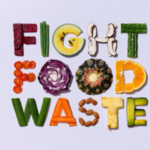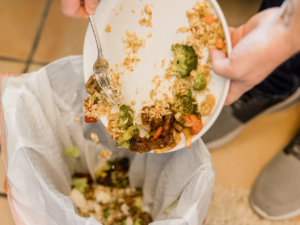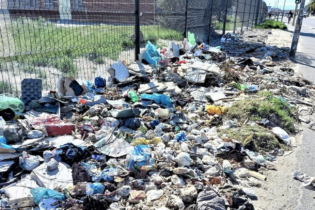As South Africans prepared for their traditional end-of-year festivities – from family braais to elaborate Christmas spreads – an uncomfortable truth loomed behind the celebrations. In a country where millions experience hunger, holiday food waste remained disturbingly high.
Statistics from the Department of Environment, Forestry, and Fisheries (DEFF) indicated that roughly 10 million tonnes of food were wasted annually, with 500,000 tonnes stemming from consumption waste. This was food that could have fed over seven million people per year – a significant concern in a developing country like South Africa, which faced widespread poverty, hunger, and food insecurity, noted Nicolle de Bruyn, Executive Officer of the Institute of Waste Management of Southern Africa (IWMSA). The environmental toll of food waste was substantial. Decomposing food in landfills generated methane, a greenhouse gas around 28 times more effective than carbon dioxide at trapping heat in the atmosphere, contributing significantly to climate change and accelerating global warming. Moreover, food waste led to the unnecessary use of vital water, land, and energy resources as the agricultural sector strove to keep pace with food demand.“We have a responsibility to our planet, our fellow South Africans, and our children, to buy, eat, and dispose of waste more responsibly, which is why we should take certain steps to mitigate food waste. A good place to start is this December break,” said de Bruyn.
Reducing Food Waste During the Holidays
 The figures behind food waste in sub-Saharan Africa were staggering.
The figures behind food waste in sub-Saharan Africa were staggering.
DEFF revealed that roughly 20.5% of cereal, 54% of roots and tubers, 31% of oil seeds and pulses, 66% of fruits and vegetables, 29.7% of meat, 37.7% of fish and seafood, and 27.2% of milk products were wasted in the region.
De Bruyn shared five simple methods used to reduce food waste during the holidays:
1. Smart Shopping Practices
Shoppers were encouraged to avoid impulsive buying, especially for big festive meals, by sticking strictly to shopping lists. Smaller quantities of perishable items were preferred, with bulk purchases reserved for non-perishables that could be stored properly. Supporting local farmers and markets with fewer supply-chain links reduced spoilage risks.2. Proper Storage Techniques
Dry goods were stored in cool, dry places, while perishables like dairy, meat, and certain vegetables were refrigerated to extend their lifespan. Airtight containers preserved freshness and prevented spoilage during the hot December period in South Africa.3. Thoughtful Meal Planning
Planning meals in advance helped avoid over-purchasing and reduced food waste during large celebrations. Households assessed existing kitchen supplies before creating detailed shopping lists to prevent unnecessary duplicates.4. Portion Control and Serving Sizes
Guests were encouraged to take only what they could eat to reduce excess food on plates, promoting both waste reduction and healthy eating habits.5. Composting Organic Waste
Composting provided a sustainable solution for unavoidable food waste, converting it into nutrient-rich soil for gardens and reducing landfill waste. De Bruyn emphasised that changes embraced during the festive season could lay the groundwork for long-term environmental stewardship and social responsibility.“We have the opportunity to create a legacy of mindful food consumption that benefits both present and future generations, ensuring that the spirit of the holidays extends beyond the festivities and into a more sustainable way of living,” she concluded.







